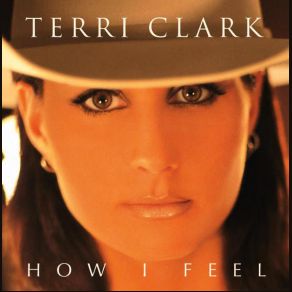How I Feel
Download links and information about How I Feel by Terri Clark. This album was released in 1998 and it belongs to Country genres. It contains 12 tracks with total duration of 46:27 minutes.

|
|
|---|---|
| Artist: | Terri Clark |
| Release date: | 1998 |
| Genre: | Country |
| Tracks: | 12 |
| Duration: | 46:27 |
| Buy it NOW at: | |
| Buy on iTunes $4.99 | |
| Buy on Amazon $4.99 | |
Tracks
[Edit]| No. | Title | Length |
|---|---|---|
| 1. | I'm Alright | 4:00 |
| 2. | Now That I've Found You | 3:37 |
| 3. | Everytime I Cry | 3:48 |
| 4. | That's How I Feel | 4:01 |
| 5. | You're Easy on the Eyes | 3:33 |
| 6. | Getting Even with the Blues | 4:00 |
| 7. | Till I Get There | 3:53 |
| 8. | Not Getting Over You | 3:47 |
| 9. | This Ole Heart | 4:00 |
| 10. | Cure for the Common Heartache | 3:33 |
| 11. | That's Me Not Loving You | 3:15 |
| 12. | Unsung Hero | 5:00 |
Details
[Edit]With Just the Same, Terri Clark proved she was going to be around for a while, and that the impression her self-titled debut made was no fluke. And like most acts Luke Lewis oversees, she's been allowed to grow with each release. How I Feel opens with one of the best songs written in the country genre in the preceding decade or so, Kim Richey's testimonial anthem "I'm Alright" from her own Bitter Sweet album. In Clark's interpretation, the song is less Americana and more mainstream pop-country, but Clark's voice is no ordinary instrument. She delivers both the humor and the pathos in the tune without forcing the issue. Produced by Keith Stegall, Clark is allowed to let her natural voice more fully into the mix. Her inflections are her own, and the songs are well suited to her forthright style of delivery. To say that Clark is emotive is one thing, to say that her voice is the sound of emotion itself is another, and it is the latter that's true — take a listen to "Everytime I Cry" or Clark's own "Not Getting Over You," a ballad ruled by her throaty contralto, gorgeous pedal steel fills, and synth strings that sound natural. "Till I Get There" displays just how comfortable Clark is with traditional country music. Despite the presence of a B-3 in the mix, the tune itself comes right out of the early '70s. Further, there is Melba Montgomery's classic "Cure for the Common Heartache," a honky tonk pearl handled expertly with the righteous brokenhearted Western swing blues bustin' out all over it. The sum total of these 12 songs is Clark's restlessness as a vocalist and as a songwriter. Her attempt to be true to country's traditions while riding the pop-country wave of the present creates a wonderful tension that never seems resolved. In addition, Clark's songwriting is stronger, more assured, and as recognizable as her voice. A fine effort.